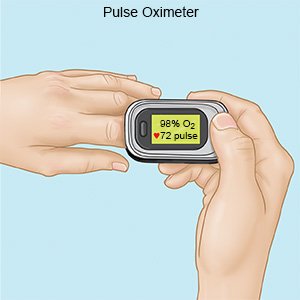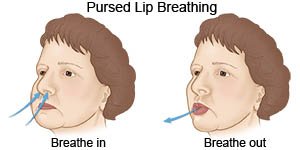Pulmonary Rehabilitation
Medically reviewed by Drugs.com. Last updated on Aug 4, 2025.
What is pulmonary rehabilitation (rehab)?
Pulmonary rehab is a program to help you improve your lung function. The program can help you manage a chronic lung condition, such as COPD or cystic fibrosis. You may have pulmonary rehab along with medical treatments. Pulmonary rehab is usually 3 times each week for a few months.
What do I need to know about pulmonary rehab?
- Pulmonary rehab may be used before and after lung surgery. You may need rehab if you have a condition that affects your breathing muscles, such as muscular dystrophy.
- You will have a pulmonary rehab team. Your team may include doctors, nurses, respiratory therapists, dietitians, and social workers. You may also work with physical and occupational therapists, or a mental health therapist. Your team will teach you how to function better at home.
Related medications
What are the benefits of pulmonary rehab?
- Increased ability to care for yourself
- Increased strength, function, and endurance
- Better control of symptoms
- Decreased hospital admissions and visits to the emergency department
- Increased quality of life
What should I expect during pulmonary rehab?
Your pulmonary rehab team will evaluate your needs during your first visit. The team will make a specific plan for your needs:
- Education about your condition may include medicines, oxygen therapy, or how to stop smoking. You will learn how to manage symptoms. Your team will help you plan what to do if your symptoms get worse. You will learn when to contact your healthcare provider or go to the emergency department.
- You may learn how to check your oxygen level. Your team may recommend you use a pulse oximeter (pulse ox). A pulse ox is a device that measures the amount of oxygen in your blood. You may be given an oxygen level goal for when you are at rest and another goal for activity.

- You will learn how to save your energy. This will make breathing easier.
- You will learn how pursed-lip breathing can help improve your breathing. Pursed-lip breathing helps keep your airways open longer and allows more air to flow through your lungs. Breathing strategies can also help loosen and remove secretions.

- You may get an exercise plan to help improve your endurance and muscle strength. You may have short sessions with time for rest in between. You may use a treadmill, stationary bike, or weights. Your oxygen levels may be checked during exercise.
- Nutritional counseling may be needed if you weigh too much or too little. Both conditions can cause problems with your breathing. A dietitian will work with you to plan healthy meals.
- Counseling and support groups may be recommended. These can help you cope with depression and anxiety that may occur with your condition. You may also learn how to reduce stress. Stress can make you short of breath.
Care Agreement
You have the right to help plan your care. Learn about your health condition and how it may be treated. Discuss treatment options with your healthcare providers to decide what care you want to receive. You always have the right to refuse treatment. The above information is an educational aid only. It is not intended as medical advice for individual conditions or treatments. Talk to your doctor, nurse or pharmacist before following any medical regimen to see if it is safe and effective for you.© Copyright Merative 2025 Information is for End User's use only and may not be sold, redistributed or otherwise used for commercial purposes.
Learn more about Pulmonary Rehabilitation
Care guides
Further information
Always consult your healthcare provider to ensure the information displayed on this page applies to your personal circumstances.
